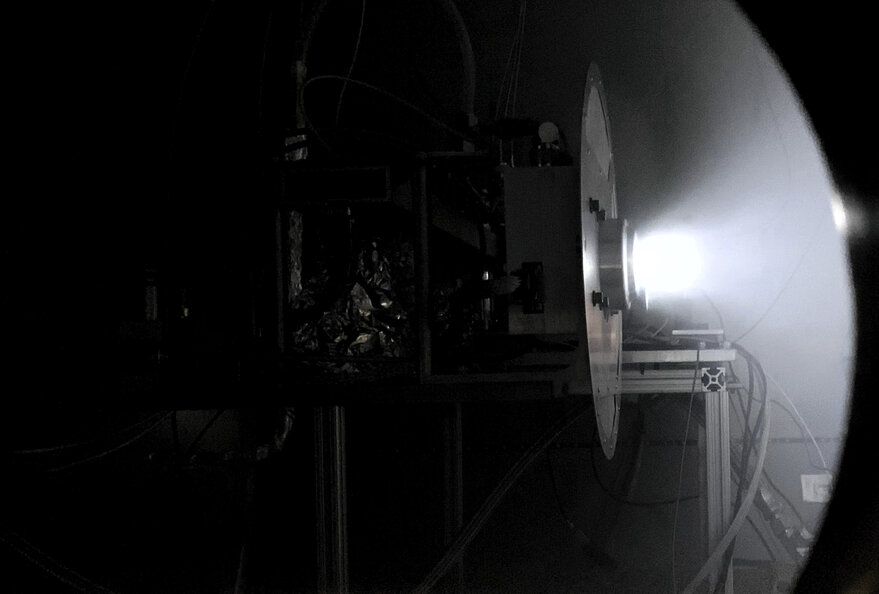COLORADO SPRINGS – Phase Four plans to fuel its Maxwell engine with a green propellant developed by the U.S. Air Force Research Laboratory, under a contract the Southern California startup won Aug. 18 at the U.S. Space Force’s first SpaceWERX Pitch Day.
By fueling Maxwell engines with the green propellant, called Advanced Spacecraft Energetic Non-Toxic (ASCENT), Phase Four seeks to produce an engine that offers both “the high thrust capabilities of chemical propulsion and the high efficiency capabilities of electric propulsion,” Phase Four said in an Aug. 25 news release.
The Space Force and Air Force are providing funding for commercial firms developing propulsion systems that can produce significant thrust for various mission requirements, including the ability to dodge potential collisions.
“Space is rapidly becoming congested and contested,” Phase Four CEO Beau Jarvis said in a statement. “The U.S. Space Force and commercial satellite operators must increase the maneuverability of their spacecraft to operate safely and minimize on orbit risks.”
Phase Four customer Capella Space revealed in June that Maxwell electric thrusters were working well in orbit.
Phase Four’s first Maxwell engines run on Xenon propellant. Phase Four also is testing its radio-frequency thrusters with water and solid iodine propellants.
“It was important for us to demonstrate performance on traditional electric propellants for our first product,” Jarvis told SpaceNews by email. “We’re currently developing a future version of Maxwell to operate on iodine. And of course, multi-mode is a bit further out but will really open up new capabilities for spacecraft.”
With ASCENT, Phase Four seeks to show space vehicles could possess multiple propulsion modes, akin to gears on a car. Chemical propulsion would offer high thrust for rapid maneuvers like orbit changes and collision avoidance. Electric propulsion, meanwhile, would provide lower thrust but higher efficiency for orbit transfers that require significant changes in velocity and long duration station-keeping and phasing.
In addition to working with ASCENT propellant, Phase Four is working with other government customers to further adapt Maxwell engines to operate on low cost solid propellant that can be stored without high pressure, delivered pre-fueled and ready for rapid satellite integration.
The company also is scaling up Maxwell engine production with the goal of offering customers delivery within three to four months.
ASCENT is designed to provide a 50 percent increase in density specific impulse over hydrazine monopropellant, according to the Air Force Research Laboratory.
